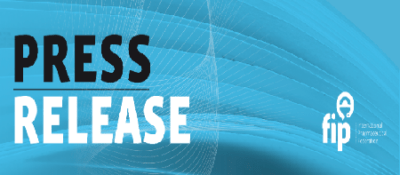A new report from the International Pharmaceutical Federation (FIP), released recently, provides an overview of some of the systems used to report medicines shortages around the world. “Reporting medicines shortages: Models and tactical options” points out that shortages have worsened. The document is intended to support the implementation of the World Health Assembly Resolution on “Addressing the global shortage of medicines and vaccines” adopted in May 2016.
“Medicines shortages are putting safety and lives at risk. This report aims to guide the development or improvement of reporting systems through the sharing of best practices,” said Mr Andy Gray, co-editor of the report.
Eight medicines shortages reporting systems from six countries (Australia, Canada, Netherlands, Slovakia, South Africa and the USA) are reviewed, and a range of features, such as the scope of the shortages listed, the criteria applied (such as the predicted duration of a shortage) and the sources of information used, are compared. The report lists different ways in which information on shortages is currently being gathered and organised and describes a variety of approaches and considerations for such reporting systems. In a number of countries, shortage reporting systems are being implemented by national associations of pharmacists.
“Pharmacists are increasingly concerned about the future of medicines supplies worldwide and FIP has long been advocating for this pressing issue to be addressed. Any medicines shortages reporting system should fit into a national strategy on access to medicines information. This new report follows the FIP document ‘Medicines information: Strategic development’, published earlier this year, which calls on countries to incorporate medicines information, including on shortages, into their national medicines policies,” said FIP Chief Executive Officer Mr Luc Besançon.
Notes for editors
The World Health Assembly Resolution 69.25 “Addressing the global shortage of medicines and vaccines” calls on World Health Organization Member States to “advance, gradually, regional and international cooperation in support of national notification systems including, but not limited to, sharing of best practices, training for human capacity building through regional and sub-regional structures where necessary” and on the WHO Secretariat to “support Member States in addressing the global challenges of medicines and vaccines shortages by developing a global medicine shortage notification system that would include information to better detect and understand the causes of medicines shortages”.
“Medicines shortages reporting: Models and tactical options” is available at http://fip.org/publications.











